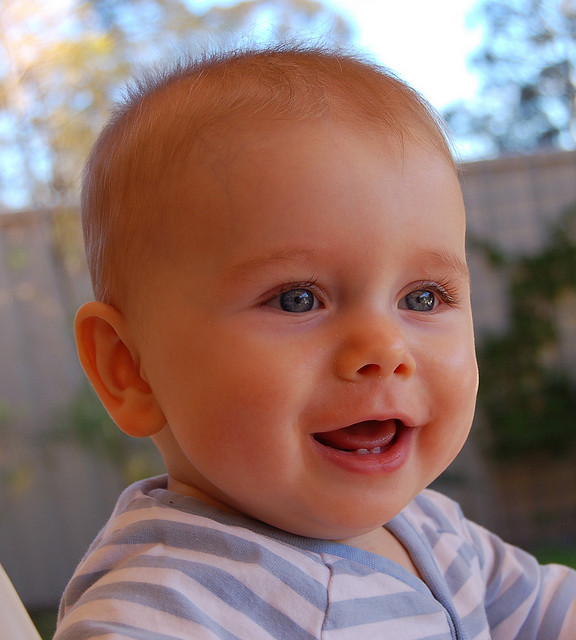
There they are one day: your baby’s teeth! Now what?
As your baby begins to develop teeth, you may notice changes to more than just his or her mouth. Your baby may become more irritable or restless. In addition, you will need to begin caring for his/her teeth to keep them healthy. Prepare for your baby’s teeth by knowing what to expect, how you can help, and how to take care those baby pearly whites.
What can I expect?
Baby teeth usually begin appearing between 4-7 months, although all children are different. The first teeth to come in are usually the bottom front teeth. Sometimes teething may hurt and cause the baby to be fussy and drool more than usual.
Teething does not cause a fever. A fever usually indicates another issue. If your baby has a fever you should see a doctor to determine the issue.
What can I do to help?
You can help alleviate teething pain by:
How can I take care of my baby’s teeth?
You can start cleaning your baby’s teeth as soon as the first tooth appears. You should use a damp wash cloth to wipe away plaque twice a day until the child is one year old. If left unchecked, plaque can damage babies’ teeth as they come in.
After one year of age, you should begin using a soft baby brush and a small dab of toothpaste that does not have fluoride in it. The non-fluoride toothpaste should be safe for your infant to swallow. Choose a brush that has soft bristles, a small head, and a large handle. Be on the lookout for signs of tooth decay such as brown or white spots on the tooth. Take your baby to the dentist after his/her first birthday.
If you give your child a bottle or sippy cup be sure not to leave it with your baby in the crib. Falling asleep with milk or juice in the mouth can cause decay. You can start using a sippy cup at 6 months old and should stop using a bottle at 1 year of age. Avoid sugary juices and flavored milks as these can lead to decay.
If your baby shows signs of tooth decay schedule an appointment with a pediatric dentist as soon as possible!
For information about pacifiers and thumb sucking see Time to Pass on the Pacifier.